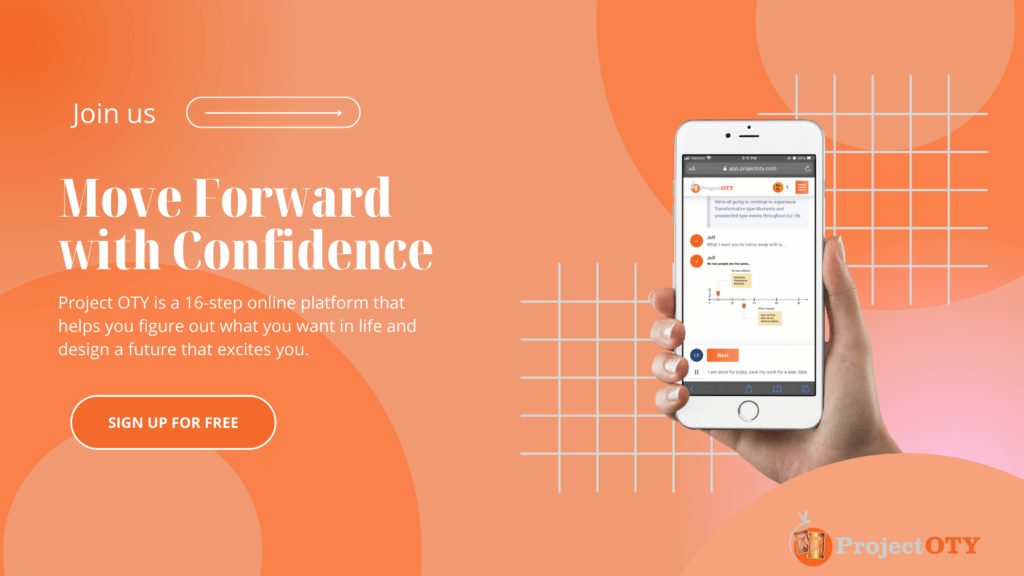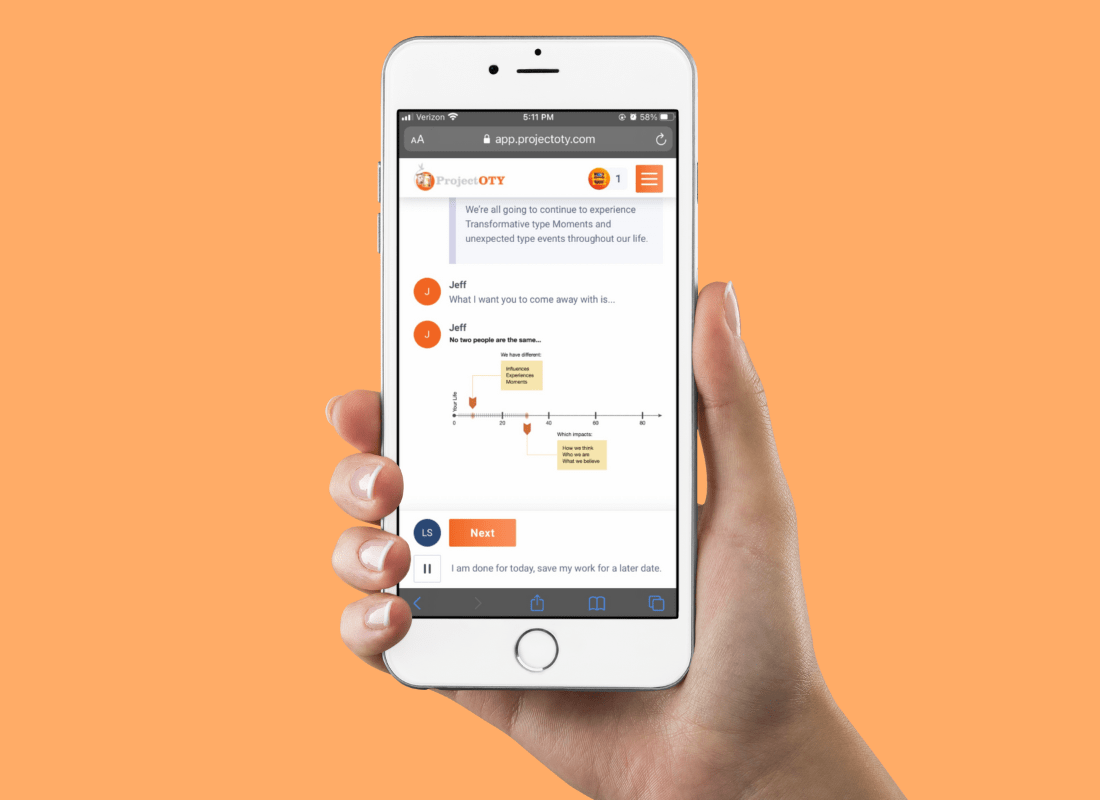It’s no great mystery. Finding a career you love is no easy feat.
Plus, everyone and their brother seems to have their two cents to share when it comes to this topic. People will always tell you to “do what you love” and “find your passion”.
This usually tends to lead to you struggling. You take the advice of “doing what you love” but you end up hating what once was your hobby, or you go down the path of finding out that doing “what you love” didn’t pay out as well as you thought.
Fast forward…your future self is in a bind.
In order for you to avoid that reality, I want to lay out some more realistic (and easy-to-implement) advice on how to find a career that you love (whether you’re going from “college to career” or your want to change up your current role).
I want to share some insightful steps that go way beyond the advice of just “do what you love to do and you’ll never work a day in your life.” (Sound familiar?)
I want you to find the kind of meaningful career that not only “feels right”, but earns you more than enough to pay rent each month.
At the end of the article, the goal is that you’ll come away with a clearer idea of a career you love and would be willing to pursue.
1. Your Unique Strength is the First Key
The easiest starting point to finding a career you love is identifying what you are uniquely skilled in doing.
What is your unique strength?
Oftentimes, we don’t even realize what our natural skills are until we see them reflected in the actions or feedback of someone else.
I say that since you might be reading this and thinking “I don’t know my skills.”
Not a problem. We have a Unique Strengths exercise in our free trial of the Project OTY platform that you can use to learn your strengths today based on positive feedback from others.
In the meantime, if you’re personally not sure, think about the times other people seek you out for advice or help.
What do they need help with? What kinds of questions do they ask that they know you have the answer to?
Which topics and questions do they ask that you’re happy to answer? In fact, if you think about it…you could probably talk for hours if they let you…
Hopefully, you have a better indication of your personal strengths now. Keep that in mind for later…
2. Paint a Picture of Your Ideal Future & Success
Now, it’s time to ask deeper questions and consider what you want from a career, and how that meshes with what you want from life.

Your career and your life should feel aligned. For example…if you want to travel for work, or you want to work with people (or you REALLY don’t want to work with people), take that into account.
Think about your work life and what you want as a professional and team member:
- When you imagine your ideal routine and role, what does that look like?
- What do you value in a team and what drives you in your work currently?
- What kind of work culture do you want to be in?
Also, take the time to think about yourself in the next 5 years:
What does success look like to you?
- What are you doing?
- Why are you doing it?
- Where are you?
- When you imagine your ideal routine, what does that look like?
Who you are and what you want should be folded into the career that you’re aiming for. Having your life and work more peacefully balanced, allows you to live a more peaceful, productive, and purposeful life.
3. Determine “Like” Versus “Love”
Passion is an interesting concept. There are many things in life that might hold your passion.
You say to yourself “Hey, I know I’m a good copywriter, chef, and ballet dancer. Now what?”
These things might all be near and dear to your heart. However, it’s important to differentiate the “like” from the “love” for these three things.
There are those interests where you might find that you prefer it as a hobby in your spare time, but doing it all day, every day would wear on you.
In general, you might find you prefer doing these things without the pacing, deadlines, or structure of a job.
When you think of these areas of interest, ask yourself: “Could I picture myself doing this day in and day out? Can I survive the daily grind here?”
It’s also easy to think of an ideal day-in-the-life when considering a role in these areas. But think of the most stressful day…which role could you return to the next morning with that same “spark”?
Ask yourself (in keeping with the earlier example):
“If I encountered a setback or an on-the-job challenge while being a chef, a copywriter, or a ballet dancer, which would I most likely be willing to push through for?”
4. Pay Attention to the Intersection
At the intersection of both passion and skill, you find your calling. If you love doing something, and you’re skilled at it, that’s a recipe for a powerful and passionate career path.
Also, it’s rare to be good at something and not love it a little bit, right?
Now that you’ve considered your strengths and passion, look at the overlapping areas.
What are you thinking now? Is your list of options getting a little clearer?
5. Brainstorm Career Options
Now it’s time to take your organized thoughts and further drill them down into a potential career choice.
A simple Google search can help you narrow down more specific titles related to your passion and skills. Online job boards and job descriptions will give you more insight from there.
Make a list of the titles you find that match your current abilities and what you would feel interested in taking on in your prospective role.
Then search these potential job titles on Tiktok or YouTube. Look for videos that detail a “day in the life”. While this won’t give you a full and realistic understanding of the career option (often what’s posted is a “highlight reel”), this is a great way to get a quick snapshot.
From these videos, not only get a better idea of what the role includes, but you also get a feel for the person on that career path.
Can you relate to them? Do you share similarities that signal you would also be a good fit for this career path?
Take down any notes on what you learn from your research.
There are several online resources and career services websites that can help you get a more realistic view of prospective career paths. A great example that our team has found includes the search tool, videos, and stories through Roadtrip Nation.
6. Research, Test & Revise Your Idea
Now, it’s time to treat your potential career idea like a science experiment. You have a theory of what could work, based on your passions and unique strengths as indicators. Now you need to dig deeper and test things out.
The best way is to connect with those in that role.
Start following people on LinkedIn and other social channels who are on your desired career path. (If you can find people who are local to you, that’s a plus.)
Look into their LinkedIn work history to learn how they might have achieved the role they’re in.
If you can, plan a meeting or job shadow opportunity with someone you know who is working on your ideal career path. (This is where knowing someone locally pays off.)

Otherwise, aim to set up a meeting with your new social connection. Depending on their bandwidth and time, they may be open to an interview.
Be sure to ask some of the following questions:
- What was your “a-ha moment” in deciding this was the right career path for you?
- Why do you do what you do?
- What it is about this role that drives you each day?
- What is the most challenging part of this career?
- What do you wish someone would have told you about the role before you choose this career path?
Not only is this a chance to build a better understanding of the career, but you may find this person is a great potential mentor and connection to a future job in your ideal career.
7. Create & Recreate Your Path
Throughout your search, you will continually be rethinking your path forward.
You’ll gather more information and maybe find what you thought was a possible career path… isn’t really aligning with who you are.
You are also human and capable of change in your life. You might find that the career path you chose isn’t your “forever path”.
Give yourself the permission to reinvent your path as needed. It’s less about “finding your path” and purpose in life and more about creating it.
Start Your Career Journey Right
If the thought of the future has you feeling overwhelmed, Project OTY is your guide. Our platform walks you through a step-by-step process to go from feeling confused or anxious about your future, to confidently achieving your dreams with a fully organized plan of action.
No more feeling “stuck”. No more wondering about your next steps or sacrificing what you want from life. Design the life you want to be living…and go make it happen. Get started with our free trial now!



